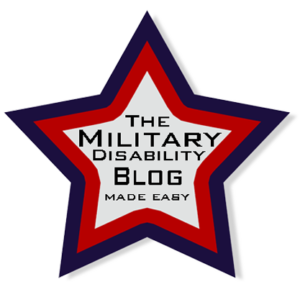On March 20, 2025, we will stop accepting new Military Disability Made Easy subscriptions. For more information about how this change may impact your subscription, click here
The 4 Parts of a Buddy Letter
- Published:
- Last Updated: October 3, 2022

A buddy letter is a statement in support of a VA Disability Claim, written by someone 18 years of age or older, who has direct, first-hand knowledge of an event or injury, and offers an account of what they witnessed in support of a veteran’s claim.
These personal statements can be from your spouse, friend, pastor, co-worker, boss, adult child, a fellow service member, or any other credible witness (18 years of age or older).
A credible and supportive statement from a competent individual can be the linchpin to winning your VA disability claim.
A buddy statement constitutes “lay evidence” under the law, which simply means “after the fact” evidence.
In this post, we will be exploring the 4 essential elements of a buddy letter, followed by VA buddy letter examples.
How to write a VA buddy letter
When writing or obtaining a buddy letter in support of a veteran’s VA disability claim, use VA Form 21-4138, Statement in Support of a Claim.
I’ve heard gossip that the VA Form 21-4138 might be hurting your claim…
Guess what?
They are wrong.
VA Form 21-4138 is still the PREFERRED method for personal statements according to VA Rating Officials.
When filling out the form, remember: A great VA buddy letter is short and sweet (3-4 paragraphs max). Think less is more. We’re not writing a novel here, friends.
VA Raters are very busy people, so you want to give them the exact information they need, at the moment they need it, to support a veteran’s VA disability claim.
All buddy letters must include:
- Your name, personal identifying information, and how you know the veteran
- What you witnessed or are witnessing
- The veteran’s current symptoms and level of disability
- A signature testifying that the information stated is to the best of your knowledge and belief
Let’s look at some examples.
Part 1: How do you know the veteran?
In part 1, you need to explain how you know the veteran.
Here is an example of how to write this section:
“My name is John Doe, and I’m the husband of veteran [INSERT VETERAN’S NAME].
I’m writing this statement on behalf of veteran [INSERT VETERAN’S NAME].
I have known [VETERAN] since 1989. We met in high school and became high school sweethearts.
Over the past 30 years, we have interacted daily.”
Part 2: What you witnessed or are witnessing.
In part 2, you need to explain in detail what you witnessed or are witnessing in regards to the incident that caused the condition or how the condition developed over time.
You do NOT need to explain every detail, just establish the condition’s beginning in relation to the veteran’s military service. Basically, help define how the condition is service-connected.
Here is an example of how to write this section:
“When I first met [VETERAN] before she entered active duty military service, she was happy, fun loving, and had no mental health issues whatsoever. All of that changed in July 2004 when she was raped by another service member while TDY to Lackland Air Force Base, San Antonio, Texas. It became very evident to me that she suffered and still suffers from severe PTSD, depression, and anxiety following this event. I encouraged her to get help and seek treatment many times over the years, but because she was an officer and worked with senior military leaders, she was afraid of retaliation and reprisal.”
Part 3: The veteran’s current symptoms.
In part 3, you need to explain how the veteran currently suffers from the condition, including symptoms and limitations caused by the disability.
Again, you do NOT need to explain every detail or reproduce the doctor’s notes. Just include the things you know about and have personally witnessed.
Here is an example of how to write this section:
“Ever since the incident, I witnessed her suffer from severe depression, anxiety, insomnia, nightmares, relationship problems, trust issues, anger issues, panic attacks 3-5x per week, memory problems, and sexual dysfunction, among many others. The rape mentioned above by a fellow service member has affected her so much that it is my belief she cannot have a normal relationship with anyone anymore, which has caused numerous marital challenges over the years. I am 100% certain that her PTSD, depression, and anxiety is due to the rape.”
Part 4: Signature.
In part 4, you need to sign and date your name to testify that the information stated is to the best of your knowledge and belief.
Here is an example of how to write this section:
“I CERTIFY THAT the statements on this form are true and correct to the best of my knowledge and belief.”
Signed, John Doe, January 23, 2019.
Conclusion
Ultimately, buddy letters can be a great help to a veteran’s claim if they are simple, straightforward, and clearly communicate how the condition caused by military service has affected the veteran’s life.
Recent Posts
TDRL vs. PDRL—Which is better for disability benefits?
February 13, 2025
Leukemias and Multiple Myelomas NOW on the Presumptive List
January 9, 2025
Two MORE Conditions added to the Burn Pit Presumptive List
January 3, 2025
The 2025 VA Disability Rates are here!
December 2, 2024
About Us










39 Comments
Great buddy letter example but what if that person are no longer in your life. Can or will a buddy letter be appropriate and will it be accept by VA?
A legitimate buddy letter signed by the individual will be accepted, regardless of whether or not you are close the individual currently. As long as the person was present and can write a letter detailing what they witnessed, it will be accepted.
hello, what is considered "personal identifying information" at the beginning of the buddy statement?
Hi Mike-
The VA will need things like contact information and information that shows your relationship to the veterans (i.e. information showing that you served together, are married, etc.).
How many buddy letters should be included with claim? For PTSD for example, wife is an obvious choice but friends and/or other family members too?
I dint want to submit too many or not enough.
Thanks
Buddy letters are tricky in that they really do not hold much weight compared to medical records or other official documents. Really only a couple are helpful unless each provides new, pertinent information that will effect your rating. That information should also be in your medical records, however, in order for the VA to put much weight in it.
on the 21-4138 and it was not even looked at. Filed for increase over a year ago. Instead of appealing i am about to refile for increase and my wife using a sworn affidavit and also having it notarized. I'll never use that crap form again.
A Good thing is to have it notarized under penalty of perjury., or elsewhere; when needed such as Board of Veterans Affairs[BVA]. BVA does not by LAW even have to consider an unnotarized buddy statement.
Unfortunately, the reality is that buddy statements are very low on the importance of evidence that can be submitted. Official medical records and commander's statements hold much more weight. If something is only mentioned in a Buddy Statement but not located anywhere else in the record, it will most likely be ignored.
What happens if a buddy letter is not signed?
A buddy letter definitely needs to be signed to attest that it is real and not forged.
My husband has 100% VA disability, he received a letter reducing it to 0%. He had cancer off the larynx, the cancer is in remission. However, his voice was affected to the point he is very hard to understand and has affected his ability to work as he is in sales. He also slobbers and has neck spasms. The doctors have all said this could be a result of the radiation. What do I do.
If you can get a Doctor to say: "It is more likely than not that (the symptoms you mentioned) were a direct result from exposure to radiation during treatment for cancer of the larynx." That statement signed by a doctor should be included with Form 21-0995 if his reduction to 0% happened within the last year. If more than a year – use Form 21-526EZ and include the physician's letter(s).
Good advice.
Most 100% ratings for cancer are only applicable while it is active and for 6 months after the last treatment. However, they are then supposed to re-examine the condition and rate any lasting symptoms. Did he have an exam? If so, they should have rated the remaining symptoms at that time. You shouldn't have to reapply for them.
He should at least qualify for one of the larynx codes, like aphonia code 6519.
If you did have an exam and the examining physician did properly record his current symptoms, then you definitely need to submit an appeal. If he didn't have the exam, then you need to contact your VA to get one set up.
Will the Aug 2004 version of this form still be accepted?
It is always best to use the updated versions, but if the buddy letter was written and dated before the current forms were issued, then they can still be used to support a claim/appeal.
Is a buddy letter meant to cover just 1 part of a claim IE: you get headaches and you have lower back pain. Do you need 2 letters or do you need to have them put it all in one?
A buddy letter can cover everything in a single letter. Make sure, however, that the buddy clearly comments on each condition separately and how that condition alone affected your daily life and ability to do your job.
So I am filing for Migraines due to burn barrels and frequently flying through that nasty haze over Baghdad as a UH-60 Crew Chief. I was never seen by a doc while in because I just figured it was headaches. After doing research and seeing it can be linked to exposure I decided to file. So from what I am reading in these comments, it’s probably pointless to file a claim for it even with a buddy letter.
It isn't necessarily pointless. A single buddy letter with no other evidence is weak, however, the more evidence you can give, the stronger you case.
In your case, because the migraines were the result of exposure, if you can provide a couple buddy letters and even a commander's letter that all testify to both the exposure and that you experienced headaches in service, and if you can provide ample evidence that similar exposure is known to cause migraines, and include a NEXUS Letter from your physician claiming that the migraines are the result of the exposure, then you'll have a fairly solid case.
I have a diagnosis for GERD and Doctor fill out the DBQ form but he will not write a nexus letter. Will I win my claim for getd
It's tough to say without knowing how strong your evidence is for service-connection. If it was diagnosed during service and you have medical records showing that, you should be fine. If it wasn't, you'll need significant evidence of service-connection, and a DBQ is medical evidence but not service-connection evidence.
We discuss the different types of service-connection on our site, so check them out and see if you have solid evidence of any of these. If not, you'll need to find another physician to write a NEXUS and/or other forms of evidence.
https://militarydisabilitymadeeasy.com/service-connection.html
My dad is working on upping his disability because he’s been having a lot of mobility issues (along with some PTSD) and they are severely affecting his day to day life. He asked me to write a buddy letter for him (to add to his doctors stuff and other documents) because I’m around him almost daily and have witnessed his struggling, but this is from events in Vietnam. I didn’t witness the actual events. Does this make me ineligible to write the letter?
Not at all. You can write the letter in support only of his day-to-day limitations. You would not be able to speak to the actual event, but you can provide testimony of how the conditions have worsened and affect him currently.
I just filed an intent to claim for injuries sustained in Iraq in '04. They have gotten worse over the years. I never went to sick call after getting in an humvee accident. I have 3 buddy letters verifying the accident and my injuries, one of which is from my medic. is this enough along with my chiropractor letter? Will a commander's letter carry more weight than my buddy letters? I wanted to remove myself completely from the military after I got out, but I feel like I should have pursued treatment sooner and wonder if it's even worth it to file now. Thank you for your help!
You can definitely strengthen your case by getting a commander's letter, though the Buddy letters should be enough to verify the event occurred. Even more important however is more modern medical evidence. A chiropractor alone is not enough to officially diagnose you with a condition. Have you seen a physician for your conditions? If not, you need to have the condition officially diagnosed by a specialist. A NEXUS letter from the specialist connecting it to the accident will be very beneficial. Since so much time has passed, you also need to show that the condition has been present consistently over that time to rule out a more recent cause of the condition. It must be clear that the accident was the cause, and with such a large gap in evidence, that is harder and harder to prove. Your chiropractic medical records can be helpful in this, especially if you started going soon after the incident or service.
Can I link my ptsd to my knee injuries due to prolonged daily pain (25 years)? I have read articles that support the link.
It is possible. You will need to have a mental health professional officially treat and diagnose your PTSD and clearly note that the cause is your knee pain.
I'm recently filed for injuries in 1983,long time but I spent 2-3 days in hosp w/surgery stitches diagnosis post concussion syndrome am filing PTSD migraines do I have light vlaim
Migraines can be connected to PTSD. Make sure you have a NEXUS letter that clearly notes that your migraines are the result of your PTSD.
https://militarydisabilitymadeeasy.com/nexus-letter.html
I retired in 2006 and rated at 30%…I got diagnosed with Sleep apnea, in 2011, my civilian doctor connected it to my Hypothyroidism and hypertension which are service connected. She never did a nexus letter, nor did I file a claim! My fault I didn't know that I could (never got educated, like I am now). My question…is it too late to file for service connection for OSA, with a nexus letter? Or do I need to do another sleep study, that is current, with a nexus letter?
Thanks in advance!
Robert
Yes, you can definitely file for it now, but you will also need recent treatment records showing the current severity of your OSA (daytime sleepiness, use of CPAP, etc.). If you haven't been seen since the initial diagnosis, you will definitely need more recent evidence. Not all of this has to come from your civilian physician (the VA will request a C&P Exam), but it will make your case much stronger to have recent evidence from your civilian physician as well along with the Nexus Letter.
IF you were treated for and injury at the base hospital, say a sprain neck. You only have one document in your medical records, can a buddy letter help in your claim? Thanks TimM
It can help prove that the injury occurred. The more pressing issue, however, would be to prove that the condition is an ongoing disability if it was only mentioned once in your medical records. The VA doesn't rate a condition that successfully healed, and the lack of medical records suggests that it did. If any significant time has passed since the injury, it will probably be assumed that any current issues are a new injury and not related to the original without regular documentation connecting the original to the present.
Follow up: I completed another sleep study, and they found I still have OSA. I also had a Nexus letter linking my hypothyroid to my OSA done, I filed a claim, and the VA scheduled me for a C&P exam. The C&P examiner said it was less likely than not that my hypothyroid is causing my OSA. So my claim was denied. I'm so frustrated right now…what is my next step?
Thanks,
Robert
You can submit an appeal.
https://militarydisabilitymadeeasy.com/va-appeals.html
Make sure to emphasize the development of your OSA in relation to your hyperthyroidism. If you didn't with the initial claim, you could find medical studies that connect the conditions and submit those as additional evidence. Highlight how your OSA developed in a similar manner to hyperthyroidism as proven by those studies. Also, reiterate the claims made by your physician in your Nexus.
Who signs the buddy letter? STATEMENT IN SUPPORT OF CLAIM 2900-0075: #9 says: SIGNATURE OF VETERAN/BENEFICIARY. You would think the person making the statement signs it but its asking for the veteran's signature.
That's on VA Form 21-4138
Hi Sara – That's an excellent question. It is confusing. The VA still notes VA Form 21-4138 as the preferred method for a buddy statement. When using this form, the witness can include all of their contact info at the end of their statement and then sign at the bottom instead of the veteran. The VA also has a new form that can be used for lay statements that makes the distinction clearer between the veteran and the witness: VA Form 21-10210. This isn't, however, noted as the main preferred form, so it is confusing. Ultimately, either form will work just fine as long as the veteran's info and witness's statement, contact information, and signature are clear on either.